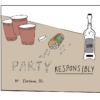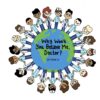The primary duty of physicians is to improve the health of their patients. But as a result of new technologies, through their years as medical providers, physicians are often involved in many futile efforts that are undertaken to prolong life. These efforts, more often than not, only add to the misery of the situation and end up causing more pain to the patient.
In his famous blog post “How Doctors Die“, Mr. Murray explained that at the time of a crisis, the patients’ family members, in their panicked situation, often want the physicians to do everything in order to save their loved ones. But the phrase “to do everything” can mean several different things. It should mean “to do everything that is reasonable”, but the connotation of what is reasonable is also very subjective. This often places the doctor in a very uncomfortable position. He is trying to maintain the trust of the family because he fears litigation and cannot afford to appear like he is trying to withhold possible treatments from the patient. But on the other hand, he may consequently be forced to provide a kind of care that he knows may only harm his patient, something he pledged against in the Hippocratic Oath.
Image Source: muratseyit
But whose fault is it? Is it the system that fosters and rewards this kind of behavior? Or is it the patients’ fault because they fail to realize the limitations of modern medicine? It is probably more complex than just this. It is indeed an interplay of a patient’s lack of sufficient knowledge, the physicians’ fear of legal action, and the fault of a system which places its incentives in all the wrong places. With the current system, it is not a surprise that physicians are forced to make these choices for their patients in their everyday practice. It helps to improve patient satisfaction while reducing the chances of litigation, but it also raises some important ethical concerns.
Physicians, although unable to withhold treatment from their patients, are free to manage their own care. Thus, it might not be surprising that according to a survey, when it came to their own end-of-life care, 88% of physicians chose to not have any kind of heroic measures performed to resuscitate them when nearing their own death. The fact that the majority of physicians chose options for themselves that were drastically different from what they were recommending to their patients suggests the need for careful scrutiny of our current healthcare system.
With the sudden surge in the amount of technologies that serve to extend the last moments of the patient’s life, our medical system has to be changed in order to better reflect the needs of both the patient and the physician; the physician should not be forced to make decisions that are against the very core moral principles of his profession, and neither should the patient be made to suffer unnecessarily.
Please don’t hesitate to leave comments below regarding your opinions on this topic.
Feature Image Source: When angels deserve to die.. by Benzene Aseel










